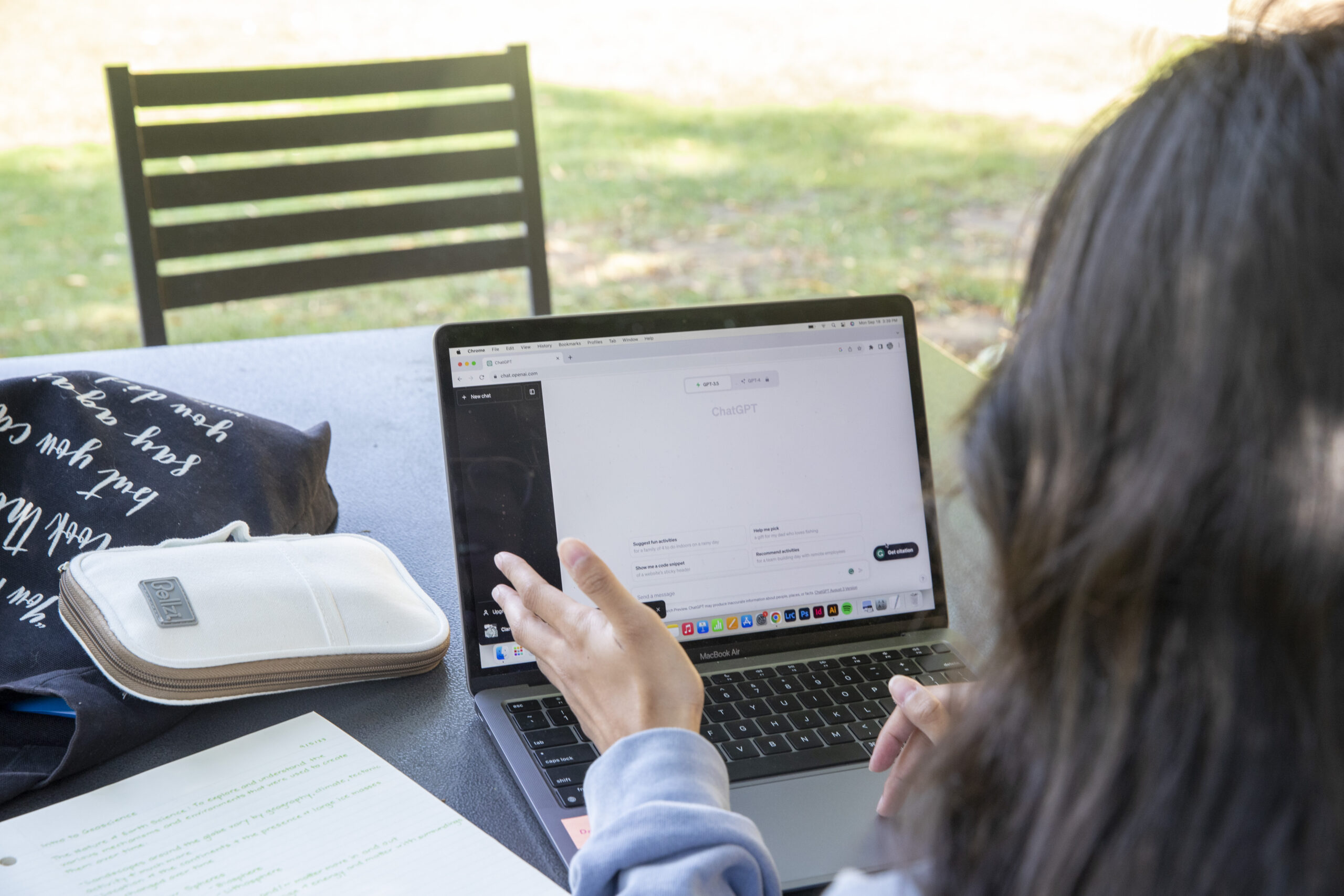
ChatGPT continues to be a talking point throughout college campuses, including at CBU.
As students began their studies this semester, the university administration released a brief document on Sept. 4 outlining guidelines for the use of ChatGPT. The new policies provided a concise but detailed explanation of how the Artificial Intelligence (AI) system works, as well as the dangers that professors and students must look out for.
According to Dr. Jennifer Tronti, assistant professor of English, one of the main problems that CBU identified in their AI guidelines was the fact that “AI tools do not create original thoughts or ideas.”
“I think if we wholeseome adopt it right now, there’s too many people letting it do the thinking for them. A lot of people have called it ‘outsourcing your thinking.”
Dr. Jennifer Tronti, assistant professor of English
“I think at the moment where we’re in the phase of development and usage where ChatGPT is not being utilized in perhaps a healthy way,” Tronti said. “I think if we wholesale adopt it right now, there’s too many people just letting it do the thinking for them. A lot of people have called it ‘outsourcing your thinking.’”
Tronti used the example of thesis statements to illustrate her point. If a student uses ChatGPT to write the thesis for their paper, they are not developing original ideas. Thus, students cannot think critical- ly about literature if they constantly use a computer program to do it.
“In literary studies, I want you to read [material] and I want you to respond to it with your own ideas,” said Dr. Ber- niece Alspach, professor of English. “In creative writing, I don’t want you to rely on it even for generating ideas. I’d rather you generate ideas with your own experiences, your own writing process and your own voice.”
If ChatGPT should not be used for academic writing, the question remains whether it should be used at all. According to Audrey Smith, senior creative writing major, AI has opportunities to assist new writers as they learn grammar and mechanics.
“I do think ChatGPT can be used to help beginner writers,” Smith said. “Sometimes looking at the blank page is terrifying and seeing what their papers could look like is motivating. But hopefully, the response becomes ‘I can write something even better than this, now that I have an idea,’ as opposed to ‘Why would I write something on my own, now that I have this?”
This relates to the most challenging aspect of discussing ChatGPT: Drawing the line between using it as a tool versus as a crutch.
“It’s a hard line, but it’s the same line that’s been there for years,” Tronti said. “If you go to a tutor and you have a rather involved and overeager tutor, and they change your sentences for you, we can step back and say no, the student has to do the work or the writer has to do the work.”
Another problematic outcome of using ChatGPT is its tendency to pull information from various sources without citing them. When someone uses ChatGPT, the software takes data from all areas of the internet, which could result in a student potentially plagiarizing legitimate sources without even knowing.
“There are some other unethical kinds of ways that they have fed this beast,” Tronti said. “It’s gobbled everything up. I think it’s heavily problematic in terms of how it is building its information. What you’re getting when you’re using AI in an academic context are things and materials that are easily accessible. When you can do in terms of your research on the web, you can do a lot but it is not the same as what you can do with an academic library.”
However, just because ChatGPT has been used dishonestly does not necessarily mean it will antagonize English professors forever.
“When new things come out, a lot of times people get afraid,” Alspach said. “So we’ve had some really good conversation among the faculty, just saying don’t be afraid. New things evolve and it’s OK. It’s not going to ruin education forever.”
Tronti said she believes the heart of the issue is whether the tool is being used as a shortcut. Students should be pushing themselves to do better and to improve their skills.
“While I think it has some potential to help a developing writer jump to a new level if it’s used in a responsible, healthy and ethical way. I fear it’s going to discourage us from taking the next step, from thinking hard things and doing hard things,” Tronti said.
Though ChatGPT continues to grow and expand, it has a ways to go before it becomes a sufficient tool for academic use.


